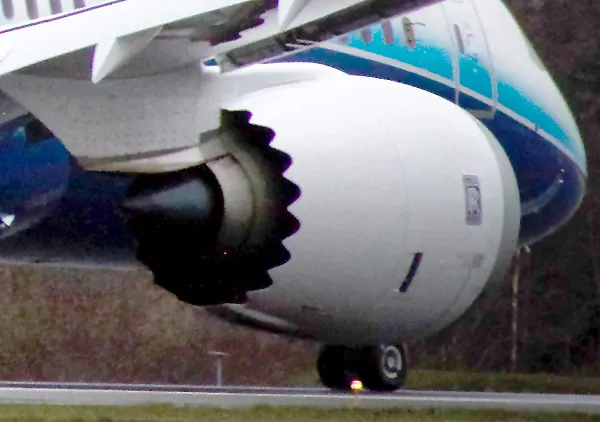
COMMENT: Business travellers need common sense on laptop ban.
Mar 21, 2017

The article discusses the challenges faced by business travelers due to the recent laptop ban on certain flights. It emphasizes the importance of common sense and adaptability in navigating these restrictions. Business travelers are encouraged to anticipate potential disruptions and plan accordingly, such as using alternative devices or preparing for security checks in advance. The piece highlights the need for clear communication from airlines and airports about the rules and suggests that travelers should remain informed and flexible to maintain productivity while complying with evolving travel regulations. Ultimately, it underscores the balance between security measures and the practical needs of business travel.
The recent discussions surrounding the potential laptop ban for business travellers have sparked a myriad of opinions. While security measures are essential for safe air travel, it's crucial for "business travellers" to exercise "common sense" when navigating these new regulations. With travel becoming increasingly complex, understanding the implications of a laptop ban is vital for maintaining productivity on the go.
The Impact of a Laptop Ban on Business Travel
A laptop ban would significantly impact how "business travellers" operate during flights. Many professionals rely heavily on laptops for work-related tasks, including presentations, reports, and communication with clients. The inability to use laptops during flights could lead to delays in project completion and hinder effective collaboration.
Here’s a breakdown of potential impacts:
| Impact | Description |
|---|---|
| Reduced Productivity | Business travellers may struggle to complete tasks without access to laptops during flights. |
| Time Management Issues | Inability to work on flights may lead to inefficient use of travel time. |
| Increased Stress Levels | The pressure to meet deadlines without access to essential tools can elevate stress among travellers. |
| Potential Loss of Business Opportunities | Missed communication and delayed responses could result in lost opportunities. |
Alternatives to Laptops: Adapting to Travel Restrictions
As "business travellers" face the potential consequences of a laptop ban, it’s essential to explore alternative solutions to maintain productivity. Here are some strategies that can help:
- Utilizing Tablets or Smartphones: Many tasks can be accomplished on tablets or smartphones, including reading emails, creating documents, and attending virtual meetings. These devices are generally permitted on flights and can serve as effective replacements for laptops.
- Cloud-Based Solutions: Storing documents and files in the cloud allows "business travellers" to access necessary information from any device. This strategy mitigates the need for a laptop while ensuring that critical data is readily available.
- Offline Functionality: Preparing work in advance and utilizing applications with offline capabilities can help maintain workflow during flights. Many software programs now offer offline modes, allowing users to work without internet access.
Common Sense Practices for Business Travellers
In light of the evolving travel landscape, employing "common sense" practices can enhance the travel experience for "business travellers". Here are some recommendations:
- Stay Informed: Keeping abreast of travel regulations and potential bans will enable travellers to prepare adequately. This includes understanding which devices are allowed and what security measures are in place.
- Plan Ahead: Effective planning can significantly reduce stress. Business travellers should schedule meetings and deadlines considering potential travel disruptions.
- Use Travel Time Wisely: Whether it’s catching up on reading or brainstorming ideas, leveraging travel time for reflection and planning can be beneficial.
Understanding Security Measures
Security is a top priority in air travel, and understanding the reasons behind potential bans can help "business travellers" adapt. The primary motivation for such measures is to enhance safety and prevent threats. While the inconvenience is undeniable, acknowledging the rationale can foster cooperation with security protocols.
Preparing for the Future of Business Travel
As "business travellers" navigate the complexities of air travel, it’s essential to stay flexible and adapt to changing regulations. The landscape of business travel continues to evolve, and those who embrace change will thrive in this environment. Here are steps to prepare for future travel:
- Invest in Portable Technology: Explore lightweight alternatives to traditional laptops, such as ultrabooks or 2-in-1 devices that offer functionality without the bulk.
- Enhance Digital Literacy: Familiarity with various tools and platforms can improve adaptability during travel disruptions. Continuous learning in tech can prove advantageous.
- Network with Other Travellers: Sharing experiences and tips with fellow "business travellers" can provide valuable insights into handling challenges effectively.
Conclusion
In conclusion, while the prospect of a laptop ban for "business travellers" may seem daunting, adopting a "common sense" approach can mitigate its impact. By exploring alternatives, staying informed, and preparing for the future, professionals can continue to thrive in their business endeavours despite evolving travel regulations. Embracing flexibility and leveraging technology will be crucial as we move forward in the ever-changing landscape of business travel.
Related Articles

Explore Thailand: The Best Islands to Visit for Paradise, Adventure, and Relaxation

The Ultimate Guide to the Best Islands in Thailand for Your Next Getaway

Do babies need passports? How to get a passport for a newborn

How to get a U.S. passport fast: here’s how to expedite the process

What is Mobile Passport Control: 5 reasons why you should use it

SENTRI vs. Global Entry: A detailed guide

Do you need a passport to go to the Bahamas? Let’s find out

Do you need a passport to go to Mexico? A detailed guide

Do you need a passport to go to Canada? We got the answer

Do You Need a Passport for a Cruise: An Essential Travel Guide

Booster Seat Requirements: All the Rules to Follow in Your Rental Car

What Are the World’s Most Powerful Passports, and How Does Yours Rank?

How to Take a Passport Photo at Home: A Helpful Guide

You've got to have heart! Southwest's new livery

Your opinion: Should water be free on low cost carriers?

Young women bolder than guys as solo travellers
